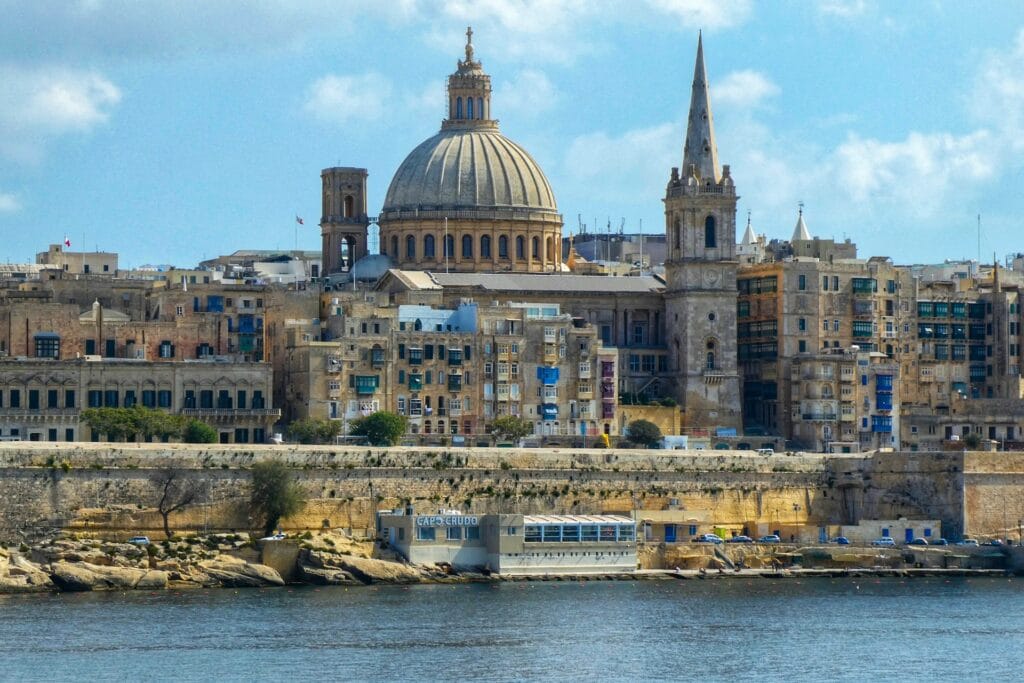
Malta is becoming a popular destination for digital nomads looking for a base in Europe. With its attractive lifestyle, easy access to the EU, and digital nomad-friendly policies, Malta offers a combination of benefits that are hard to beat.
Vladlena Baranova, Lawyer, AML Compliance officer at Immigrant Invest, certified CAMS specialist, explains why Malta is an ideal choice for digital nomads and how the Malta Nomad Residence Permit can help make it a reality.
What is the Malta Nomad Residence Permit?
The Malta Nomad Residence Permit is a special visa designed for remote workers, freelancers, and entrepreneurs who want to live in Malta while working for companies outside the country. It allows individuals to stay in Malta for up to one year, with the possibility of renewal.
Unlike other Digital Nomad Visas, the Malta residence permit does lead to permanent residency and citizenship in the country.
11 Benefits of the Nomad Residence Permit
Here are the main advantages of applying for the Malta Nomad Residence Permit:
- Easy access to the EU. Malta is a member of the European Union, offering you the opportunity to travel freely within the Schengen Area.
- Stable and welcoming environment. Malta is known for its friendly locals, high safety standards, and overall peaceful living conditions.
- Low living costs. While Malta may not be the cheapest in Europe, its cost of living is lower than in many major EU cities, like London or Paris.
- English-speaking country. English is an official language in Malta, making it easier for digital nomads to communicate and work without language barriers.
- Good healthcare system. Malta offers high-quality healthcare services, accessible to those with a residence permit.
- Attractive climate. Malta enjoys a Mediterranean climate, with warm summers and mild winters, making it an appealing place to live year-round.
- Business opportunities. Malta’s economy is strong, with opportunities for networking and collaboration in various industries, from tech to finance.
- Favourable tax regime. Malta offers an attractive tax system for foreign professionals, with the possibility of reducing your tax burden.
- Modern infrastructure. Malta boasts excellent internet connectivity, public transportation, and a variety of workspaces suited to digital nomads.
- Diverse expat community. Malta is home to a growing expat community, making it easier for newcomers to connect and build a social network.
- Residency for family members. The Nomad Residence Permit can also be extended to family members, allowing them to join you in Malta.
How to Apply for the Digital Nomad Visa
The application process for Malta’s Nomad Residence Permit is relatively straightforward:
- You must be a non-EU/EEA/Swiss national who works remotely for a company outside of Malta. You also need to meet a minimum monthly income requirement of €3,500 per month.
- Required documents. You’ll need to provide proof of employment (or self-employment), evidence of income, health insurance coverage, and accommodation arrangements in Malta.
- Application submission. You can apply online through the official government portal. The application requires you to submit the necessary documents and pay the application fee.
- Approval and residence. Once approved, you’ll be issued the Nomad Residence Permit, which allows you to stay in Malta for up to one year. You can renew the permit for subsequent years if you continue to meet the requirements.
Nomad Tax in Malta
Malta’s tax system is one of the major attractions for digital nomads. While living in Malta, you are considered a tax resident if you stay in the country for more than 183 days in a calendar year. U.S. citizens and green card holders should also be mindful of their ongoing U.S. obligations, including FBAR reporting via FinCEN Form 114, which can be securely e-filed when foreign account balances exceed $10,000. However, Malta offers various tax advantages, such as:
- Flat tax rate on foreign income. Digital nomads who qualify for the Nomad Residence Permit can benefit from a flat 15% tax rate on income earned outside Malta, provided they meet certain conditions.
- No capital gains tax. Malta does not impose capital gains tax on the sale of assets, making it an attractive place for digital nomads who invest or trade.
- Business expenses incurred for the operation of your remote work can be deducted, reducing your taxable income.
While taxes may vary based on your specific situation, Malta’s overall tax system is designed to be attractive to foreign workers and entrepreneurs.
Conclusion
Malta’s Nomad Residence Permit offers a unique opportunity for digital nomads seeking a balance of lifestyle, work, and tax benefits in Europe. With its friendly atmosphere, stable economy, and access to the EU, Malta provides a solid base for remote workers. The simple application process and attractive tax benefits make it a top choice for those looking to live and work from Malta.





